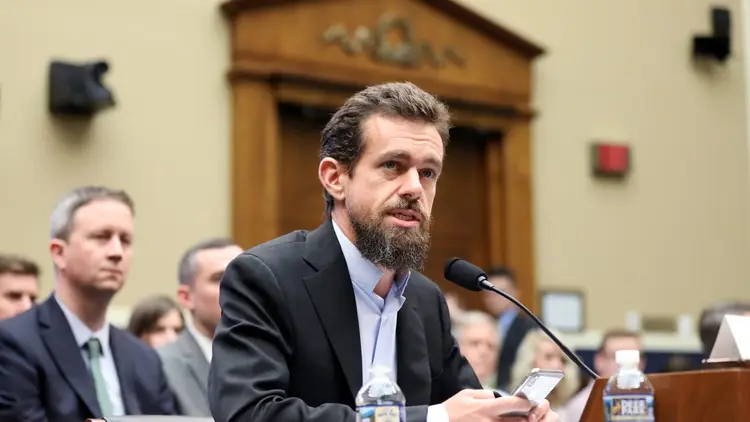Block, Jack Dorsey's fintech firm, is facing allegations of enabling illegal operations.

Hindenburg Research declared that it had taken a short position against Block, which is a fintech firm established by former Twitter CEO Jack Dorsey. The accusation of Hindenburg Research was that this firm had committed extensive fraud in the area of performance metrics.
On Thursday (March 23), Hindenburg released a report alleging that Block (previously called Square) deceives investors by inflating user figures through the use of "phony and replicated profiles."
Block criticized the report through a statement made to the public, stating that they might take legal action against Hindenburg for disseminating "inaccurate and deceptive" data. According to them, they are a well-regulated company with frequent public disclosures, and they firmly believe in their products, reporting, compliance, and controls. They refuse to be sidetracked by the common tactics employed by short sellers.
Hindenburg has caused a significant drop in the market value of the Adani Group by short-selling it. They have also claimed that Block's poor management has enabled illegal activities to thrive on its payment platforms such as Cash App. As a result, Block's stock price plummeted by 13% during the daytime in New York.
Block Accused of Predatory Behavior by Nathan Anderson's Hindenburg.
The report from Hindenburg pointed out a long list of crimes related to finances and unethical activities. According to the report, Block has been exploiting the groups they claimed to be assisting. The report criticized Block's strategy of targeting underprivileged groups, young people, and Generation Z by charging unreasonable fees and high loan rates.
According to the report, Block's success hasn't been due to new and game-changing ideas, but instead because they allow for deceitful practices against their customers and the government, evade rules and regulations, falsely brand exploitative loans and charges as innovative technology, and deceive their investors with exaggerated performance metrics.
The Hindenburg report brought attention to Cash App's failure to supervise its "unbanked" users, who are reportedly involved in criminal or illegal behavior. The report included statements from ex-Block workers who claimed that their concerns about this matter were ignored by the higher-ups.
Unveiling the Deficiencies of Block's Cash App: The Hindenburg Incident
Hindenburg demonstrated Cash App's inadequate regulation by signing up for an account and getting a debit card using the identity of United States President, Donald Trump.
According to the report, a significant portion of Cash App's yearly income (approximately $892 million or 35%) comes from interchange fees. These fees are charged to businesses each time a customer uses a debit or credit card. Hindenburg claimed that this surpasses the maximum profit restrictions imposed on major financial services. Additionally, the report alleged that Block sidesteps these regulations by channeling the profits to a smaller bank.
According to the Hindenburg report, Cash App knowingly disregards anti-money laundering regulations in order to expand its customer base. Former workers predicted that as many as 75% or as few as 40% of the accounts they inspected were not genuine.
What services does Block have?
The main target of Hindenburg's claims is Cash App, a mobile payment platform that caters to Gen Z and is comparable to Venmo or Paypal. This service has around 70 million users as of 2021.
Weebly is an online platform that allows users to create their own websites, just like WordPress or Squarespace. It has been around for a while, as it was established in 2007. It's a DIY website builder that provides users with a variety of website-building tools.
Square is a platform that provides financial services to small and medium-sized businesses. Their primary customers are those looking for an efficient way to receive digital payments and manage their receipts with the help of a third-party provider.
Tidal is a music streaming platform that originated from a Swedish company back in 2014. Some famous personalities like Jay-Z have endorsed the platform. Its audio tracks are known for their superior quality compared to other music streaming services in the market.
What is Afterpay and why is Block's buy-now, pay-later service causing controversy?
Afterpay, a well-liked service provided by Block, is widely used as a buy-now-pay-later option that ensures customers can pay for products in instalments. Afterpay is usually targeted at young adults, with millennials comprising about three-quarters of all its users.
In the past, some people have expressed disappointment with Afterpay for imposing severe penalties if payments are not made on time, and for promoting the idea that young people should go into debt to buy expensive things. As a result of this, Afterpay has had to deal with a number of legal complaints from customers who believe that the company is not transparent enough about its fees in their advertisements.
Furthermore, Afterpay came under scrutiny by Australian financial authorities in 2019. The regulators instructed an examination due to doubts that the company was not fully adhering to legislation regarding anti-laundering and anti-terrorism financing. The auditing concluded a year later, with regulators declaring that the business had carried out the needed steps to fulfill future compliance requirements.
The famous billionaire Ray Dalio has recently become a part of Cash App’s mission to evolve into the ultimate bank for the younger generation known as Gen Z.
???? Jack Dorsey sent a message to Elon Musk stating his opinion that Twitter was not meant to be a business.
Hello, Block Head!
Note for the editors: This article has been revised with a reply from Block.









































